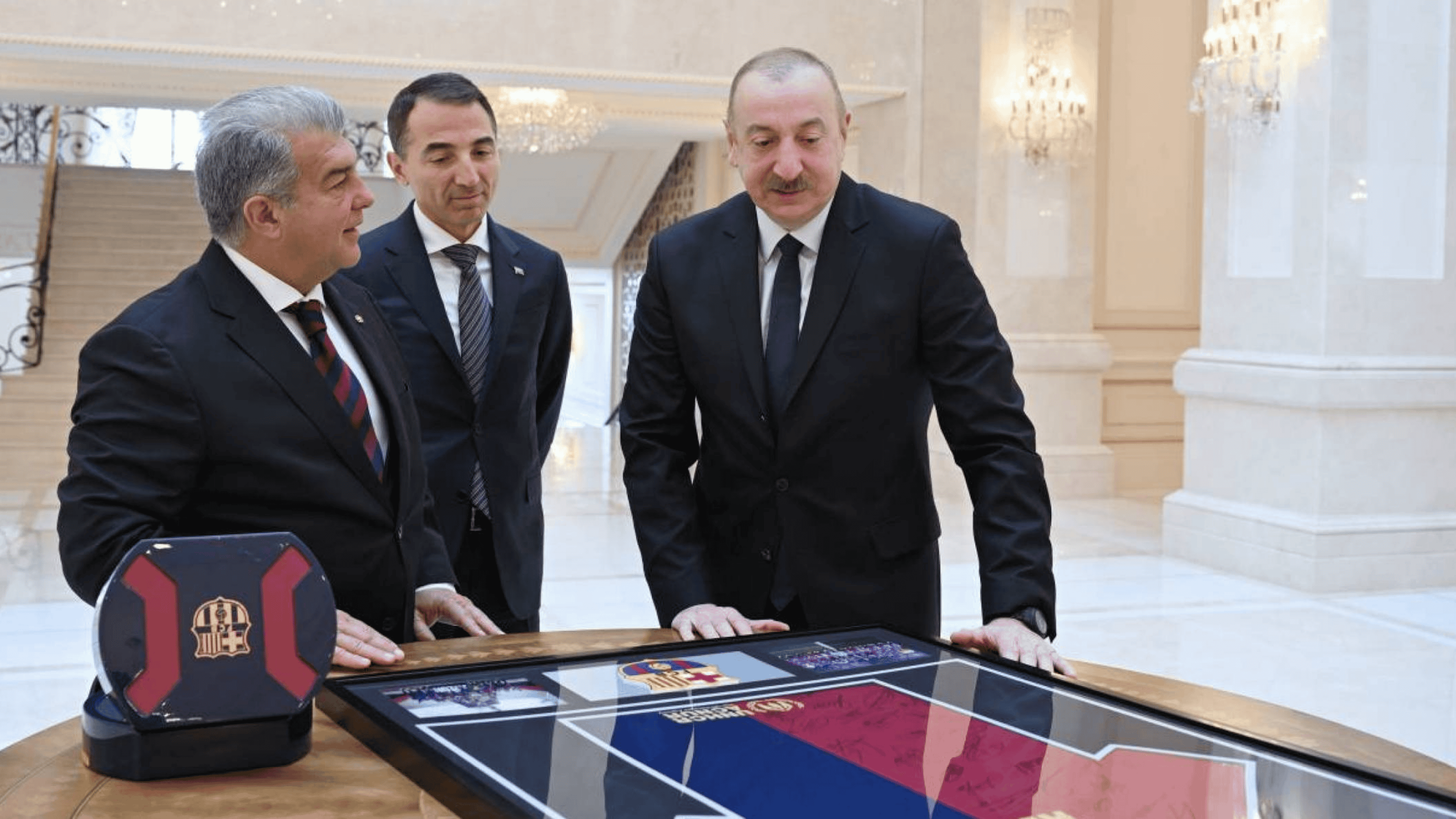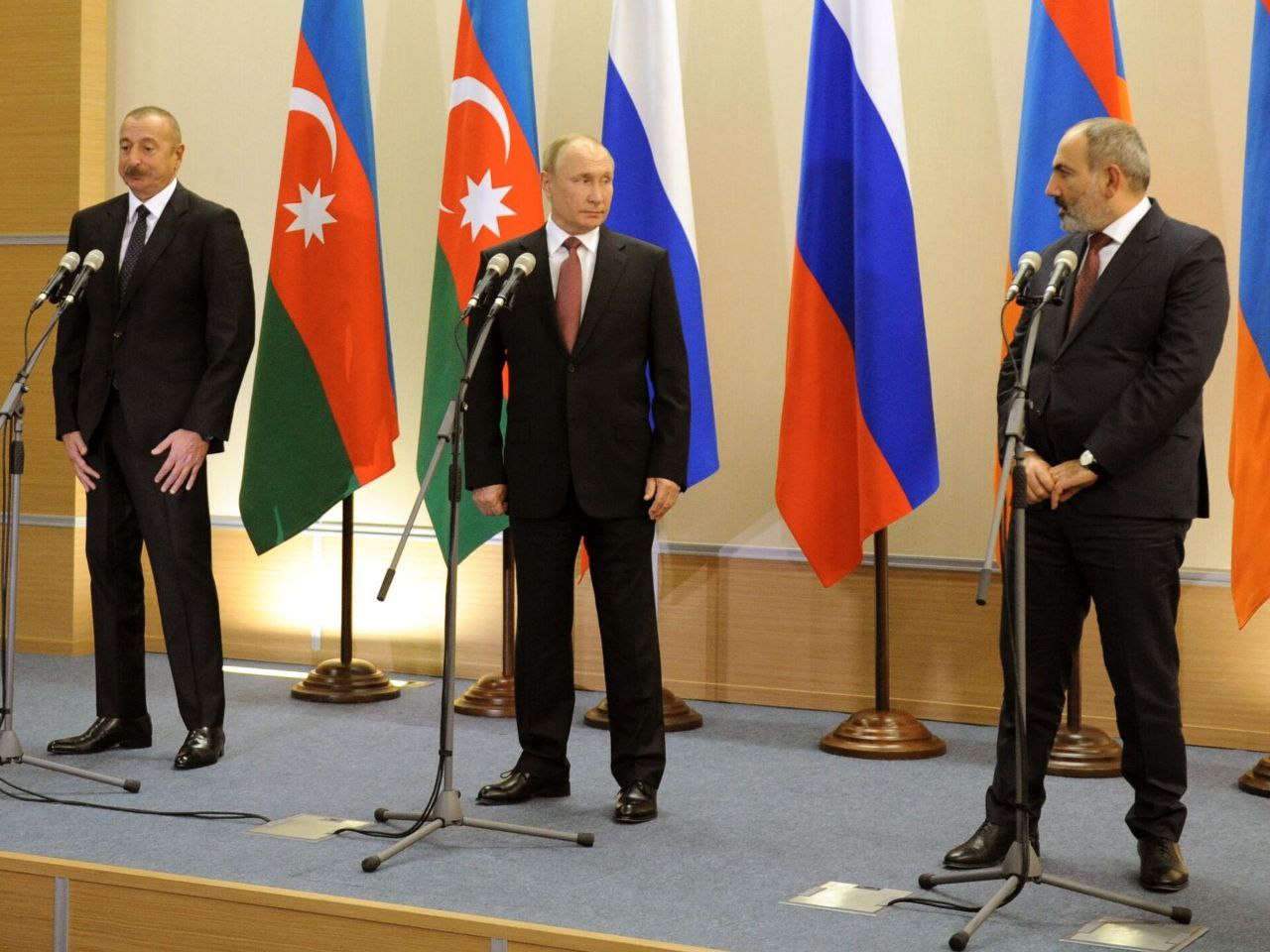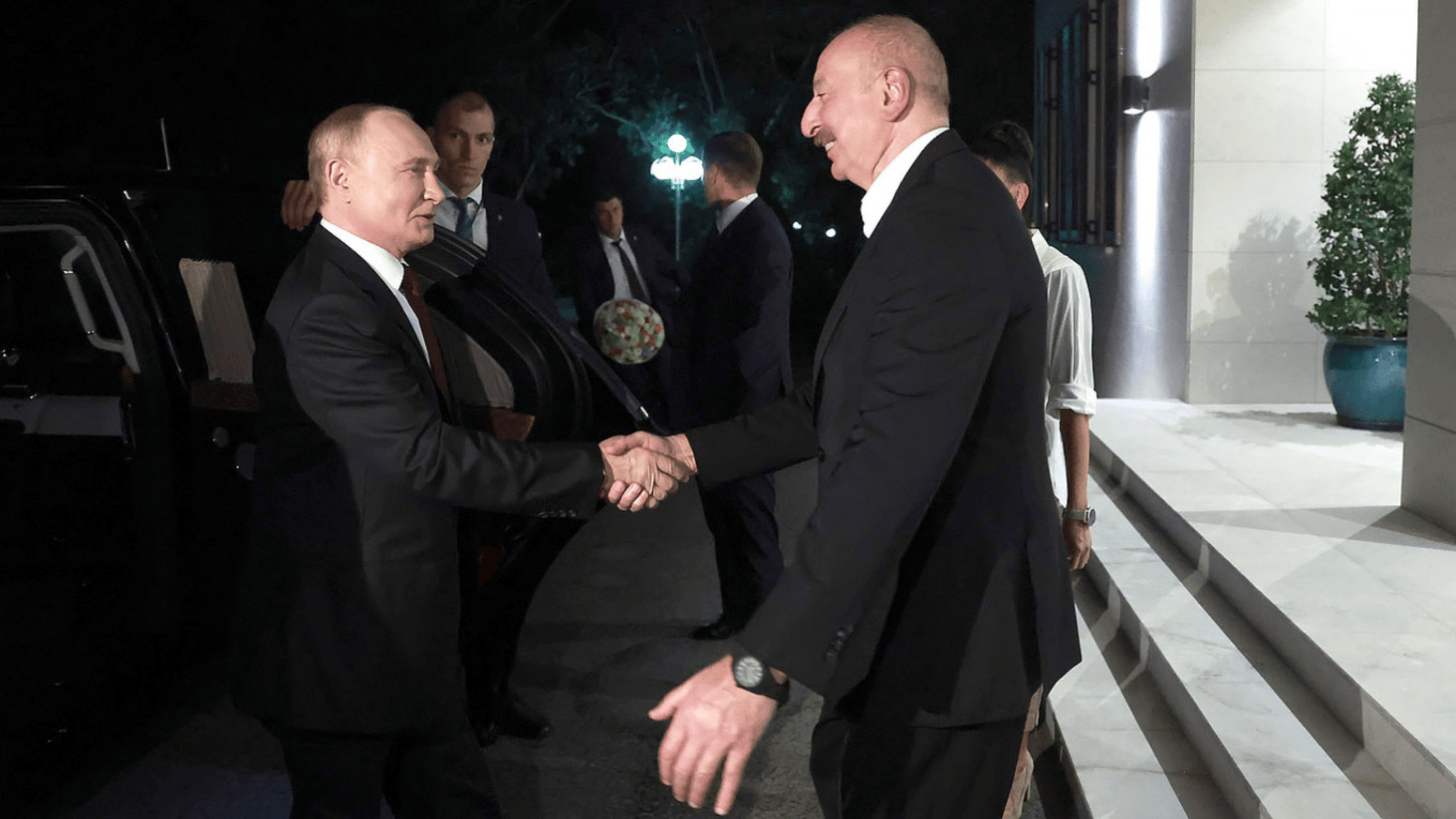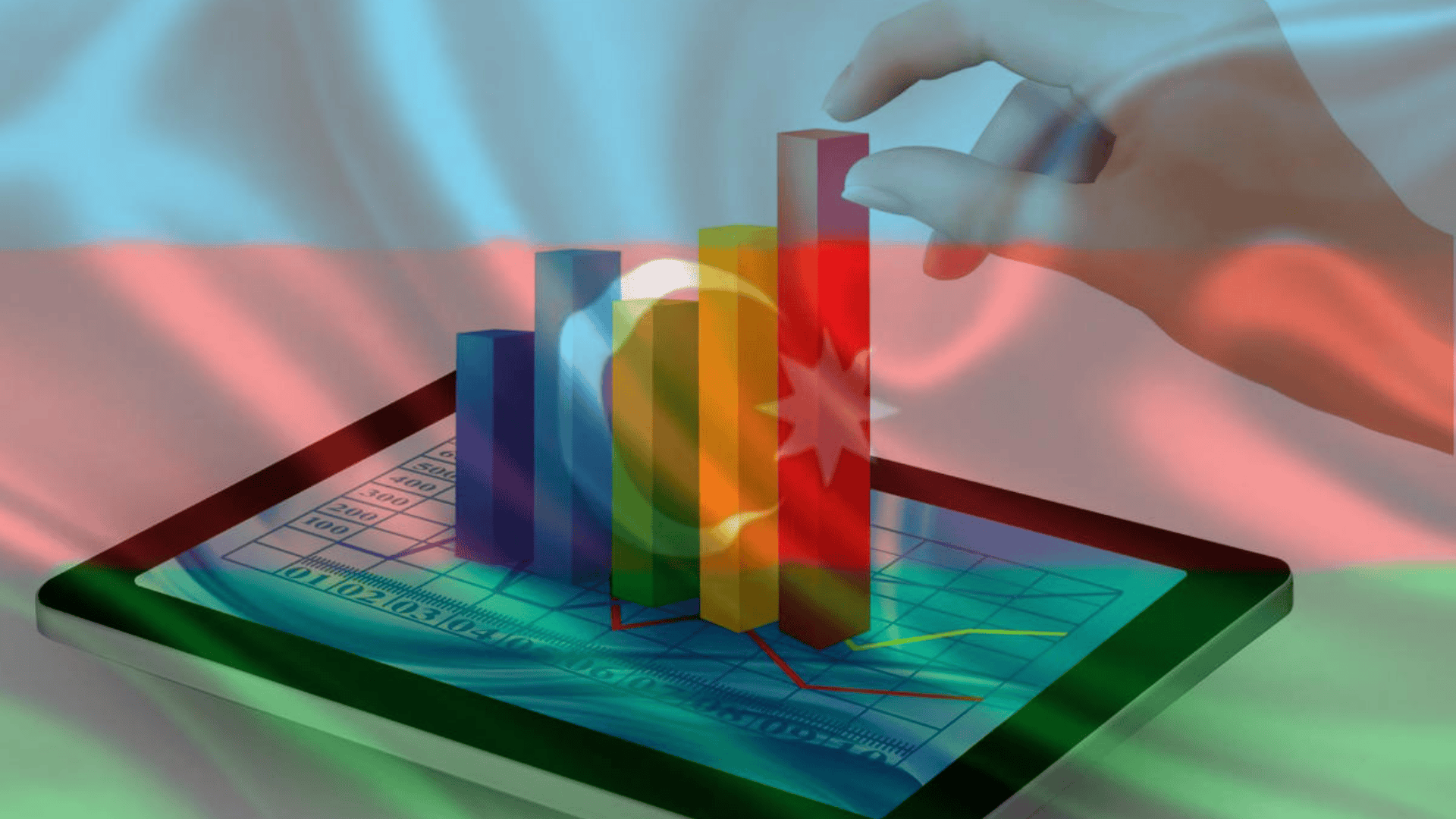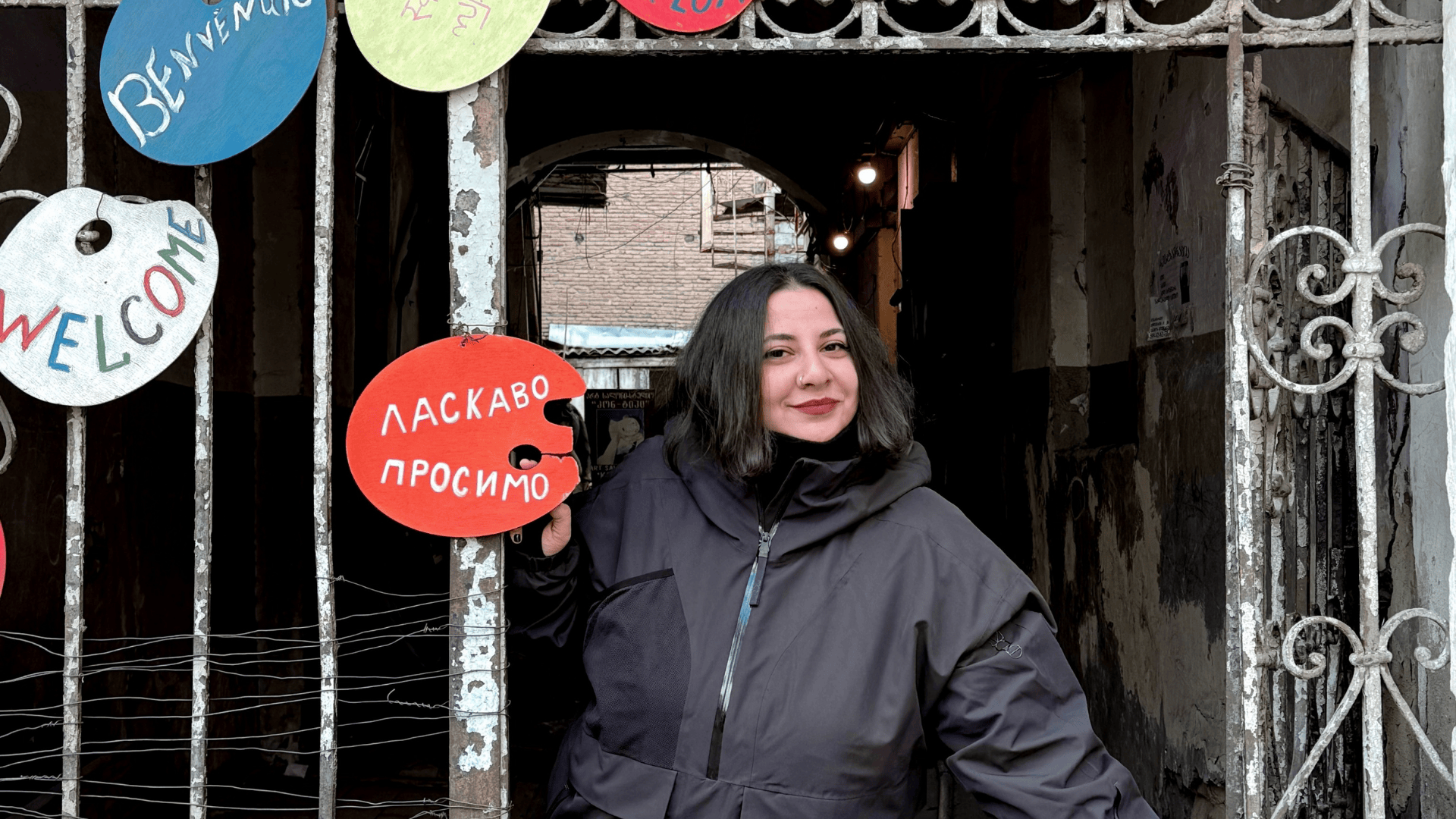Are Azerbaijani Su-22s bound for Ukraine? Assessing the Daily Express claims
Is Azerbaijan selling Su-22 jets to Ukraine?
The British outlet Daily Express claimed in a recent article that Azerbaijan — long seen as a close Russian ally — has been secretly selling Su-22 military aircraft to Ukraine and supplying it with natural gas.
The outlet framed the story as a sensational revelation, claiming that Azerbaijan’s president, Ilham Aliyev, is taking these steps to ‘get revenge’ on Russia’s president, Vladimir Putin. The article argues that, despite years of close cooperation between Baku and Moscow, relations have recently deteriorated. It also asserts that Azerbaijan is seeking to reduce Russia’s influence in the South Caucasus while deepening its ties with Turkey.
The outlet claims that Azerbaijan is allegedly sending Su-22 fighter-bombers to Ukraine via covert routes, using a logistics chain that runs through Turkey, Sudan and Germany. According to the report, the aircraft are transported under the guise of humanitarian aid, following the same pathways previously used for Russian weapons shipments.
The publication also alleges that Azerbaijan has begun selling natural gas to Ukraine. It claims that Baku is supplying small volumes via the Trans-Balkan pipeline, which was previously controlled by Russia. This is presented as Ukraine’s first alternative source of gas since it stopped importing Russian fuel.
The article further notes that Azerbaijan’s stockpiles contain a wide range of Soviet- and Russian-made weaponry. Daily Express suggests that the country could sell Ukraine artillery systems, multiple-launch rocket systems, armoured vehicles, tanks and even Tochka-U short-range ballistic missile systems.
But how realistic are these claims?
This commentary was prepared by a regional analyst. The terminology, place names, and opinions expressed reflect solely the views of the author or a particular community and do not necessarily represent the position of JAMnews or its staff.
Position of Azerbaijan and denial of the allegations
Pro-government Azerbaijani sources, including the news portal Minval citing government circles, reported that Baku maintains a policy of neutrality toward the conflict and provides Ukraine solely with humanitarian assistance.
“All other claims are described as traffic-driven fantasies.”
Since the start of the Russia–Ukraine war in 2022, Azerbaijan has repeatedly stressed its neutral stance and stated that it would not supply weapons to either side.
According to official information, Baku has so far sent Ukraine only humanitarian aid, including medicines, food and electricity supplies, and has done so openly.
The pro-government outlet Caliber writes that Azerbaijan does in fact confirm small-volume natural gas exports to Ukraine via the Trans-Balkan pipeline. In other words, there is no secret gas trade; on the contrary, all energy cooperation is conducted on the basis of official agreements.
Therefore, Azerbaijan, albeit indirectly through government-aligned sources, firmly rejects the information published by the Daily Express, describing such claims as an attempt to drag the country into the conflict.
Caliber: No evidence has been presented
According to open sources, as early as the early 2000s Azerbaijan fully retired its outdated Fitter aircraft (Su-17/22). Today, the country’s air force mainly consists of MiG-29 fighters, Su-25 attack aircraft, and planned JF-17 fighters to be procured. From a military-technical perspective, the claim of secretly sending old Soviet Su-22 jets to Ukraine appears doubtful.
Pro-government outlet Caliber, analyzing the Daily Express report, notes that the article provides no concrete evidence: no photos, no documents, and no flight data.
“The report makes accusations solely in the format of “according to our source.””
The outlet emphasizes that it is impossible to conceal the transfer of such major military equipment, especially combat aircraft.
“Anyone familiar with the region’s security architecture would understand that if Azerbaijan were actually sending military equipment to Ukraine, Moscow’s reaction would be immediate and severe. Russian intelligence constantly monitors the movement of weapons toward the conflict zone. Under such circumstances, hiding even a small shipment of arms, let alone several combat aircraft, would be impossible.”
News.az: Similar claims have been circulated before
Another pro-government outlet, News.az, notes that “such sensational claims are usually part of an information war.”
“Talks about Azerbaijan supplying weapons to Ukraine tend to arise whenever regional tensions increase. Russian and Armenian media have previously attempted to spread similar information. In June 2022, amid the Russia–Ukraine war, Russian and Armenian social media circulated claims that Azerbaijan was sending aviation munitions to Ukraine.
At the time, the Telegram channel Wings of War and the Iraqi channel Sabereen News reported that the Ukrainian airline Meridian allegedly transported Azerbaijani-made bombs from Khartoum, Sudan, to Poland. These reports later received no official confirmation and were denied by Azerbaijan.
Experts note that while some elements of these claims may have had a kernel of truth — for example, discussions about whether QFAB-250 LG bombs produced in Azerbaijan could have reached Ukraine — the situation was generally exaggerated and taken out of context.
Even when photos appeared of 82mm 20N5 mortars of Azerbaijani origin used by the Ukrainian army, objective commentators emphasized that the weapons may not have arrived in Ukraine directly from Baku, but via a third country.“
How realistic is the claim that aircraft were transported via Sudan, Turkey and Germany?
According to Daily Express, the Su-22 aircraft were allegedly sent to Ukraine not directly from Azerbaijan, but via a complex transit route. It is claimed that the planes were disassembled and shipped from Azerbaijan first to Turkey, then to Sudan, and from there to Germany, before finally reaching Ukraine.
But is this feasible from a logistical and customs perspective?
Any military cargo passing through three different regions requires extremely complex planning and inevitably attracts the attention of regulatory authorities.
Each country has airspace and cargo customs controls. It is particularly difficult to imagine that such a suspicious shipment could transit through Germany — a European Union country — without being detected.
As for the claim that the planes were transported under the guise of humanitarian aid, this also seems almost impossible. Any humanitarian shipment is formally documented, and its contents are officially declared.
Combat aircraft, even when disassembled, remain large and heavy objects that require cargo planes or container ships for transport. Such sizable components cannot cross borders without special permits and a full set of documentation.
Shipping combat aircraft under the cover of humanitarian aid is technically unfeasible. The nature of the cargo, required documentation, and international logistics rules make it impossible to do so covertly. In other words, moving such large and specialized military equipment inevitably leaves a trace.
Why does Daily Express specifically mention Sudan?
The reason is another episode that emerged in 2022. At that time, several sources claimed that Azerbaijan was sending aviation bombs to Ukraine. In that version, Sudan also appeared as a transit country.
According to the claims, there was an agreement between the Azerbaijani defense company CIHAZ and the Ukrainian state exporter Ukrspecexport, with transportation carried out by the Ukrainian cargo airline Meridian along the route Khartoum (Sudan) – Rzeszów (Poland).
This information was partially supported by documents: leaked waybills appeared, specifying the type of munitions — jointly produced by Azerbaijan and Turkey, the laser-guided QFAB-250 LG bombs.
It was reported that 32 such bombs, each weighing 270 kg, were sent and used by Ukrainian Su-25 attack aircraft. In addition, in spring 2022, sources including Africa Intelligence reported dozens of flights by Ukrainian planes between Khartoum and Rzeszów.
In other words, certain covert arms deliveries may indeed have taken place. However, there is an important nuance: these involved only a few dozen bombs and mortar shells — relatively small weapons that could be transported in containers.
A combat aircraft is an entirely different scale. The fuselage, wings, engines — each of these components is large and heavy. Transport requires either large cargo planes (such as the An-124 Ruslan) or containerized sea shipments. In any case, such cargo inevitably leaves traces in transit countries.
Moreover, since 2023 Sudan has been in a state of internal armed conflict (fighting between the army and RSF forces has been ongoing since April). Using Sudan as a secret hub for arms transit would therefore be even less realistic.
As for the role of Turkey, it should be noted that Turkey is a close ally of Azerbaijan and also a NATO member. Ankara officially provides Ukraine with military support (including drones and armored vehicles) but acts very cautiously due to its relations with Russia.
Under these circumstances, the likelihood of Turkey serving as a channel for secretly transferring Azerbaijani aircraft to Ukraine is extremely low. Such a scenario would seriously damage Ankara–Moscow relations.
On the claim of transport via Germany
Previous versions claimed that Poland was the main logistics hub for arms deliveries to Ukraine and could indeed have been a transit country in 2022. But what about Germany?
Germany provides military aid to Ukraine, but strictly within official procedures. Any shipment sent from Germany is publicly announced (for example, Berlin made official statements when transferring Leopard tanks or IRIS-T air defense systems to Ukraine).
The transfer of any weapons through Germany via secret routes, especially under the guise of “humanitarian aid,” seems unrealistic.
If one claims that the aircraft were assembled in Germany and sent from there to Ukraine, that is also impossible. Germany has not supplied combat aircraft to Ukraine and has been extremely cautious about similar initiatives by other countries (including coordinating Poland’s transfer of MiG-29 fighters).
“In the article there is no flight route data, no cargo documents, no satellite images. It simply invents a scenario in which the aircraft were allegedly transported along a certain route, without any serious evidence,” writes Caliber.
Recent Azerbaijan–Russia relations and Daily Express claims
In reporting on Azerbaijan’s alleged secret anti-Russian activities, Daily Express interprets recent developments in the relations between the two countries. The outlet claims that ties between Baku and Moscow have sharply deteriorated and that President Aliyev is doing everything to irritate President Putin.
A central element of this version is the incident involving an Azerbaijani passenger plane shot down by Russian forces.
This episode did cause serious tension in bilateral relations. Following the incident, Azerbaijani President Ilham Aliyev issued a strong statement, criticizing Russian attempts to evade responsibility. He noted that if guilt is confirmed, Azerbaijan reserves the right to take the case to an international court. At the end of 2024 and the beginning of 2025, diplomatic tensions between Baku and Moscow increased, and dissatisfaction with Russia grew among the Azerbaijani public.
Nevertheless, in October this year, at the summit in Dushanbe, President Ilham Aliyev and President Vladimir Putin held talks and discussed the incident. Putin officially apologized and acknowledged that Russian air defense systems had “accidentally” shot down the Azerbaijani plane.
In the end, both sides took steps to resolve the situation. Kremlin spokesperson Dmitry Peskov stated that the October meeting was “highly appreciated” and that careful work is underway to normalize relations between Moscow and Baku. In other words, at the official level, both countries recognized the incident as a mistake and are seeking to restore cooperation.
Daily Express focuses on this episode to emphasize a cooling in Azerbaijan–Russia relations. However, as noted above, the two leaders met in October, Putin effectively took responsibility, and diplomatic tensions have begun to ease.
Is Azerbaijan selling Su-22 jets to Ukraine?










